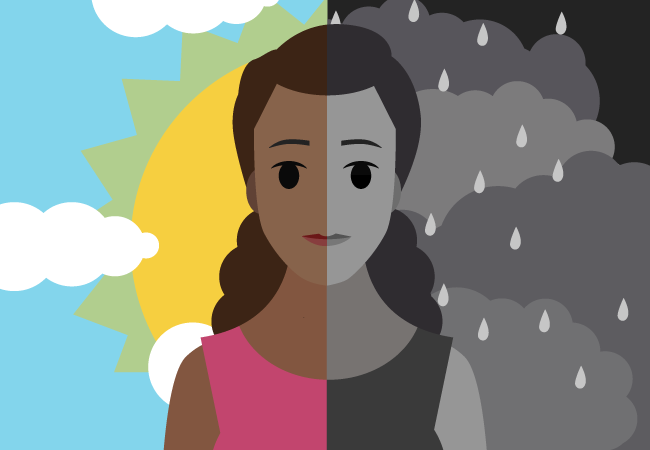March 30 – World Bipolar Day
World Bipolar Day is on March 30th. Psychological conditions such as bipolar disorder severely affect mood, thoughts, and behaviors. Bipolar disorder is different for each person, but there will always be emotional shifts involved. An emotional shift is characterized by periods of mania and/or depression. While some may experience mostly depressive states, others may experience mostly manic states. Bipolar disorder has several types, but in this article, we will focus on the symptoms of manic and depressive episodes.
Early treatment is critical
Treatment for mental illness is most effective if it is received early on. For individuals with bipolar disorder, prompt treatment is even more crucial. Bipolar disorder includes both manic and depressive episodes, so people are more likely to self-medicate with substances to control either episode if left untreated. A person experiencing mania, for example, may drink to reduce their mood. Depressed individuals may also rely on drugs as a means to cope with their emotions. As a result, these methods often lead to addiction, which is detrimental to health.
If you suffer from bipolar disorder, you have options. Understanding the signs and symptoms as well as the importance of treatment is the first step.
About 1.6% of the population in the United States experiences Bipolar I or Bipolar II Disorder each year, but early detection and treatment are vitally important. Many individuals who suffer from these disorders will continue to experience mood swings. Most bipolar disorders begin in the late teens or early twenties, making it a chronic condition. Medication and therapeutic interventions are typically more effective when administered early and symptoms are usually easier to manage.
Manic Episodes
Bipolar disorder causes mood changes that are quite different from those experienced by those without bipolar. The changes in their moods can impact their work, school performance, relationships, and wellbeing.
Mania, or a “high” mood, is characterized by:
- Experiencing intense joy, excitement, or euphoria
- A feeling of being “high,” elated, or being irritable or touchy
- Have little need for sleep
- Taking on more projects than one can handle
- Feel “jumpy” or “wired”
- Engage in impulsive or high-risk behaviors, such as gambling or shopping sprees, unsafe sex, or investing foolishly
- Talking very fast about many different things
Hypomania can occur in people with bipolar disorder. The effects of hypomania are not as extreme as those of mania. Although mania may lead to hospitalization, hypomania usually won’t negatively impact a person’s life.
Depressive Episodes
Many symptoms of bipolar disorder and depression overlap, so bipolar episodes are commonly misdiagnosed as depression. It is important to note, however, that depression does not include symptoms of mania.
In a depressive episode, people may:
- Having trouble concentrating, making decisions, or remembering
- Feel sluggish or restless
- Significant weight loss (when not dieting), weight gain, or appetite changes
- Feel fatigued or have a loss of energy on a regular basis
- Feelings of worthlessness or excessive guilt
- Suicidal thoughts or suicide attempts
- Sleeping too much or having problems falling asleep
- Slow speech, feel like they don’t know anything, forget a lot
A mixed episode manifests both manic and depressive symptoms. It’s possible for them to experience both feeling energized and feeling hopeless at the same time.
Ultimately, if you think you or someone you love may be suffering from bipolar disorder, don’t wait to get checked out. A prompt diagnosis and treatment are crucial to managing the condition. Above all else, please remember that you are not alone, and help is available. Accurate diagnoses and professional treatment are both available.


